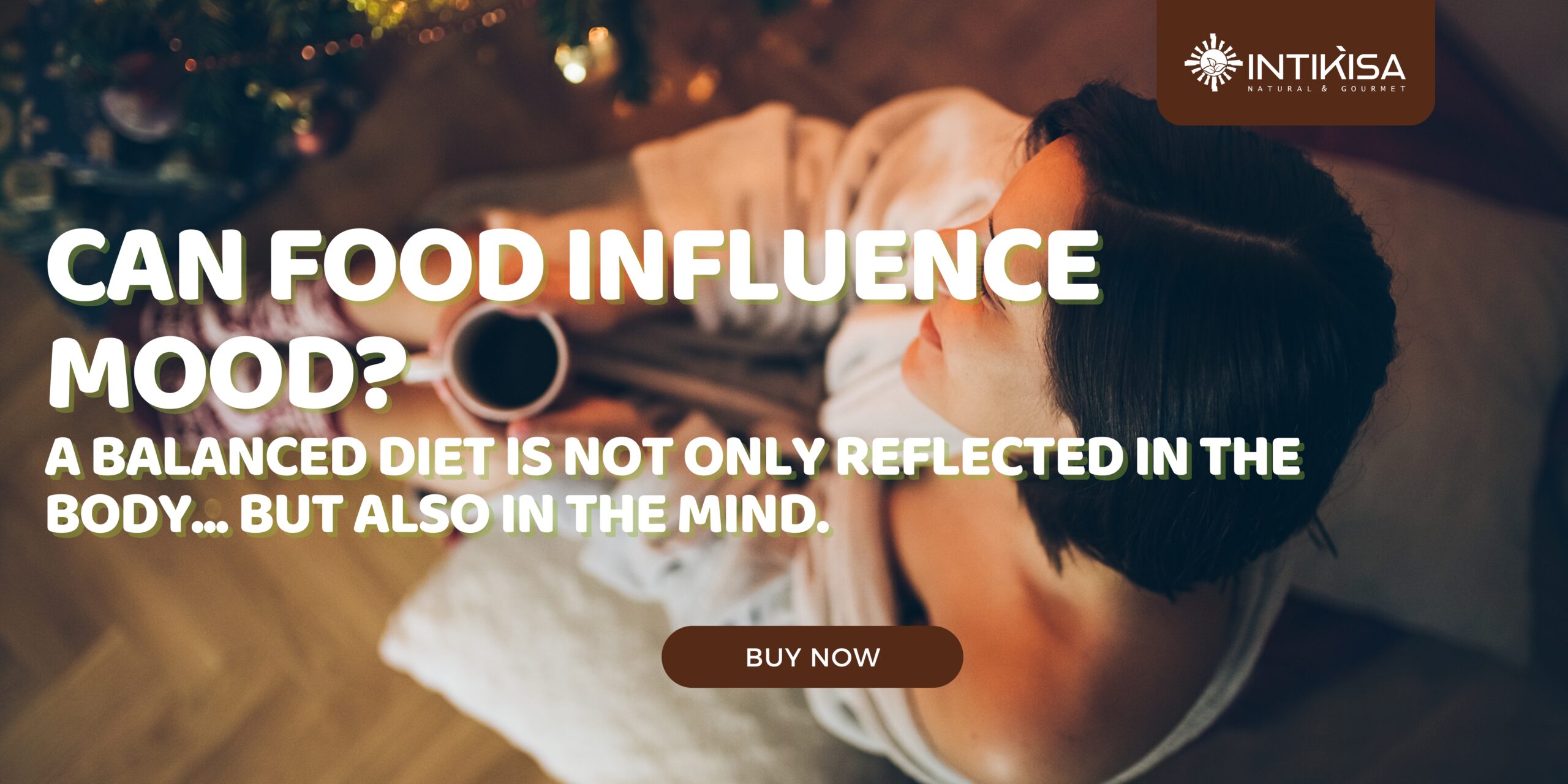🧠 Can Food Really Affect Your Mood?
When we talk about “feeling good,” most people think of exercising, sleeping well, or meditating. But there’s a fundamental factor we often overlook: nutrition. What we eat doesn’t just impact our physical health—it directly shapes how we think, feel, and act.
🥦 Your Brain Eats Too
The brain is the most energy-demanding organ in the body. Even though it only accounts for 2% of our body weight, it uses up to 20% of our daily energy. That energy comes from what we eat, which is why food quality has a direct impact on mental health.
Nutrients like omega-3s, magnesium, iron, zinc, B vitamins, and antioxidants are crucial for proper brain function. When our diet lacks them, it’s common to feel more irritable, unmotivated, or even depressed.
A 2017 study from Deakin University (Australia) found that improving diet quality significantly reduced depression symptoms in adults with moderate depression.
Source: SMILES Trial, Deakin University
🌱 How Diet Influences Mood
1. Silent Inflammation and Sadness
One of the most invisible—but dangerous—effects of a poor diet is chronic inflammation. Regularly consuming ultra-processed foods (high in added sugars, trans fats, sodium, and refined flours) causes widespread inflammation in the body—including the brain.
This inflammation interferes with the production and function of key neurotransmitters like:
- Serotonin – the “happiness hormone”
- Dopamine – the “motivation hormone”
When these chemicals are out of balance, the risk of anxiety, low mood, and mental fatigue increases.
According to Harvard Health Publishing, diets rich in whole foods, vegetables, and fiber can reduce brain inflammation and improve overall mood.
Source: Harvard Health Publishing, 2021
2. Gut Microbiota: Your Second Brain
Your gut doesn’t just digest food—it also produces substances that directly affect your emotions. In fact, 90% of the body’s serotonin is made in the gut, not the brain.
This is thanks to the gut microbiota: trillions of bacteria that live in your intestines and play vital roles like:
- Supporting immune health
- Regulating digestion
- Participating in neurotransmitter production
When your gut flora is healthy, you feel more energized, mentally clear, and emotionally stable. But when it’s disrupted (by antibiotics, stress, or poor diet), the opposite happens.
Science has even started calling the gut “the second brain” for its direct influence on the central nervous system.
Source: Harvard Health Publishing – Mind-Gut Connection
How do you nourish your microbiota?
With real foods, rich in fiber, prebiotics (like lucuma, oats, or green banana), and fermented foods like kefir or sauerkraut.
3. Nutrient Deficiencies = Emotional Slumps
It’s not just about avoiding harmful foods—it’s also about making sure your body gets what it truly needs.
A nutrient-poor diet can cause:
- Iron deficiency → constant fatigue, low mood
- Vitamin B12 deficiency → mental fog, irritability
- Low magnesium levels → anxiety, insomnia, irritability
In a world where many foods are stripped of nutrients, adding superfoods rich in micronutrients can be the difference between a gray day and one full of vitality.
🍌 Superfoods That Lift Your Mood
Nature knows best. And at Intikisa, we trust her.
⭐ Lucuma Power
Packed with slow-absorbing carbohydrates, antioxidants, and plant-based iron. Provides steady energy and helps stabilize blood sugar—crucial for balanced mood.
⚡ Maca Power / Maca Mix
An Andean adaptogen that naturally regulates stress, improves mental and physical stamina, and balances hormones—supporting a calm, positive outlook.
🌾 Inka Golden
A blend of super fibers like oats, flaxseed, and chia. Great for digestion and gut health, with a direct impact on emotional well-being.
🍊 Camu Camu
Contains 30 times more vitamin C than an orange. Supports brain function, fights oxidative stress, and boosts the production of serotonin and dopamine.
🥗 Practical Tips to Eat Better and Feel Better
- Add fiber and fermented foods
Kefir, plain yogurt, sauerkraut, and miso keep your gut (and your mind) in balance. - Avoid sugar spikes
Choose complex carbs like quinoa, sweet potatoes, lentils, or oats for long-lasting energy. - Increase healthy fats
Olive oil, avocado, nuts, and seeds support brain performance. - Stay hydrated
Dehydration is a major cause of mental fatigue. - Don’t skip meals
Eating regularly helps maintain stable blood sugar—and emotional balance.
✨ Final Thoughts
Your emotional health doesn’t just depend on your environment or your mindset. It also depends on your plate. What you eat literally builds the chemicals that shape how you feel.
Eating well isn’t a trend—it’s a powerful way to care for your mind and heart.
At Intikisa, we believe in going back to the natural way. That’s why we offer real, pure, and additive-free superfoods. Because when you nourish yourself right, everything flows better.










